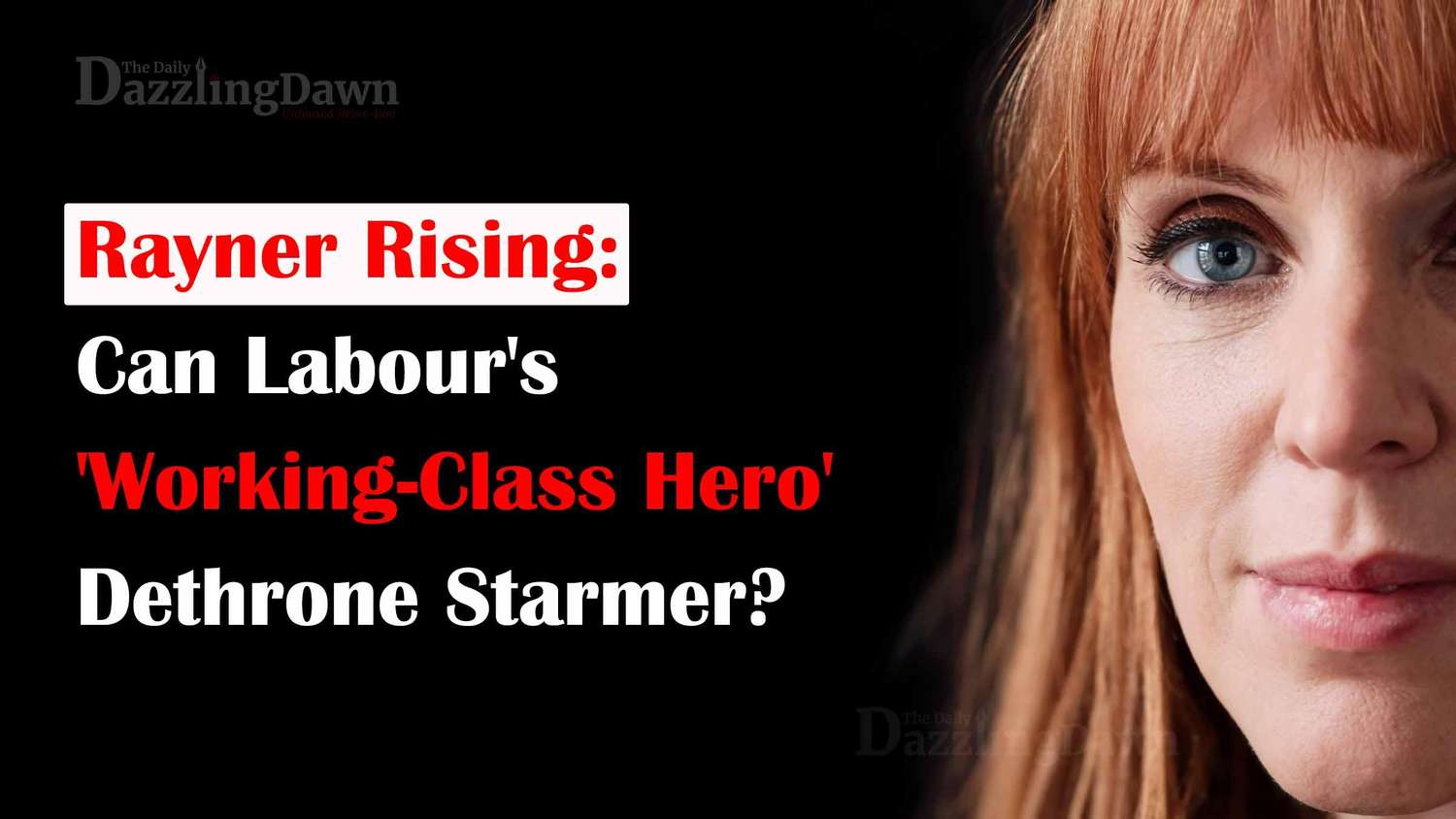The Indian policymakers and business leaders should not be worried about the political change in Bangladesh and should remain engaged with Bangladesh positively to help flourish economic relations with Bangladesh, business leaders expressed this view while talking to The Dazzling Dawn, a UK-based newspaper, popular among expat Bangladeshis living in the United Kingdom.
The Indian government had invested heavily in Sheikh Hasina's government during the last 15 years (2009-2024) ignoring the rest of the population of Bangladesh creating a bubble in the Indian society, sources in Dhaka, New Delhi and London said.
The Indian policymakers seem worried about the revolving economic relations with Bangladesh in the new environment as the previous Awami League government during the last 15 years served the Indian interest in their best capacity, sources in Dhaka, New Delhi and London said.
However, leaders of the Federation of Bangladesh Chambers and Commerce and Industry (FBCCI), Metropolitan Chamber of Commerce and Industry (MCCI), Dhaka Chamber of Commerce and Industry(DCCI) , Bangladesh Knitwear Garment Manufacturers and Exporters Association and Bangladesh Garment Manufacturers and Exporters Association said India, China, USA and EU countries important trading partners of Bangladesh.
While talking to this correspondent, a leader of the BGMEA said that Bangladesh imports Indian cotton, fabrics and raw materials, produces garments and exports to the counties in USA, Canada, Australia, Japan, UK and EU countries.
The economic engagement with India is likely to suffer provided the Indians policymakers and business leaders start working positively to flourish the relations, said a leader of DCCI.
The Indian policymakers should come to the reality, engage with the mainstream society of Bangladesh and work on reaching Dhaka-New Delhi relations to a new height, said diplomats, policymakers, business leaders and civil society members.
In the last 15 years, the Indians have maintained their relations with a certain quarter of the last ruling party ignoring the rest of the country, said a Bangladesh diplomat, while talking to this correspondent.
The Indian media should stop propaganda against the new interim government, headed by Dr Mohammad Yunus, and work professionally, said a journalist, who works in a leading business daily in Bangladesh.
The Modi government did not work in strengthening democracy, developing a multicultural society, improving human rights and grooming a vibrant civil society that can guide the Awami League government to remain on the right track, said a member of the civil.
The capacity of the existing institutions of the country has been curtailed or damaged hitting backbone of Bangladesh, he said.
The restoration of the law and order situation is important and bringing down prices of essentials are important in daily life as the real income of the common man has dropped in the last couple of years, said a MCCI leader.
Jobayer Tansim Ahmed, Director of Shah Fatehullah Textile Mills Limited, and also Secretary General at Australia Bangladesh Chamber of Commerce and Industry, ABCCI Bangladesh, while talking to The Dazzling Dawn said that Bangladesh government should develop the curricula on the textile in the universities. He said Manchester is the model of modern textile and the curricula of the textile sector in Bangladesh should be updated based on that model.
Foreign workers will continue to work in Bangladesh in large numbers, unless Bangladesh can produce skilled, efficient and dedicated manpower to run the textile sector.
The education level in the textile sector during the last 15 years has not reached the desired level to meet the growing demand in Bangladesh.
The unemployment in Bangladesh is a matter of concern and the new government should gradually start working on improving curricula and grooming the required manpower to cater to the market, adding that the traditional curriculum of producing only clerks will only create a burden on the economy.
Though Bangladesh Investment Development Authority (BIDA) is entrusted with the responsibility of maintaining the number of expat workers in Bangladesh, this state-owned organization did not perform its duty properly as the previous Bangladesh Awami League government politically intervened into the organization curtailing it capacity, sources in BIDA said while talking to this correspondent.
While talking to this correspondent, a director of Bangladesh Garments Manufacturers and Exporters Association (BGMEA) said the education system of Bangladesh should be overhauled on a short-, mid -and long-term basis to cater to the job market.
He said BGMEA University of Fashion and Technology or BUFT is working on producing skilled and competent manpower to cater to the 40-billion plus readymade garment industry.
The Bangladesh Garment Manufacturers and Exporters Association (BGMEA) set a $100-billion apparel shipment target by 2030 and the target means Bangladeshi exporters will have to ship $7.17 billion additionally per year to reach the goal.
"It is possible to achieve the target as we are diversifying the products and markets," said Faruque Hassan, former president of the BGMEA.
India has strong trade relations with Bangladesh, which is among its top 10 export destinations. In the last financial year, it sold goods including textiles, tea, coffee, auto parts, electricity, agriculture, iron, steel and plastics worth $11.1bn and imported readymade garments, leather and leather products, among other items, for $1.8bn.
India’s exports suffered in the last couple of years partly because of an Indian ban on exporting basmati rice in an effort to save it for domestic consumption and also because of Dhaka’s severe forex shortage which crimped its import capability, said Ajay Srivastava, Founder, Global Trade Research Initiative, while talking to AL JAZEERA.
Srivastava, however, expressed hope that trade would turn normal soon. “They are a smart country and cannot ignore India because of the geographical closeness with us. The situation would soon return to normal if there is no interference from fundamentalists. Exporters should tread with caution and utilise Letter of Credit for doing any business dealings there,” Srivastava said.
One industry that is not worried about the recent turmoil in Bangladesh is the cotton traders.
Bangladesh is hugely dependent on India for raw cotton to supply its $47bn (exports) garment industry and Indian traders have said they expect to meet their export targets.
“We are aiming to export around [2.8 million] bales of cotton globally, out of which [2 million] bales will be sent to Bangladesh alone” in the 12 months ending in September, Atul Ganatra, president of the Cotton Association of India told Al Jazeera. One bale is 170kg (375 pounds).
Ajay Sahai, director general of the Federation of Indian Exports Organisations, told Al Jazeera that things are returning to normal across the border.
“The movement of trucks has resumed in some of the border areas and the situation is expected to turn normal soon. They [Bangladesh] are hugely dependent on us for daily food items and will start the imports soon as bringing the similar products from elsewhere will cost them dearly,” he pointed out.
The then Home Minister of Bangladesh, Asaduzzaman Khan, in February, 2018, told the parliament that a total of 85,486 foreign nationals work in Bangladesh.
Foreigners legally work in Bangladesh, mostly in the export-oriented readymade garment (RMG) sector. But, industry insiders say, the number is much higher as many work without a valid work permit and they remit the money through illegal channels.
India leads the pack with 35,386 people while China comes next with 13,286, according to official figure.
Japan has 4,093 of its citizens while there are 4,093 Koreans, 3,395 Malaysians and 3,777 Sri Lankans working in Bangladesh, the home minister then said.
A significant number of people from Thailand, the United Kingdom, the United States of America, Germany, Singapore and Turkey are also working in different sectors in Bangladesh.
There are allegations that a large number of foreign citizens work in Bangladesh on tourist visas. These people remain excluded in the official data. According to the Bangladesh Tourism Board, as many as 750,000 foreigners came to Bangladesh in 2017.
According to World Bank data, Sri Lanka has no significant remittances sent from Bangladesh. However, there are many Sri Lankans working in the garment sector.
The Bangladesh Investment Development Authority (BIDA), the Bangladesh Export Processing Zones Authority (BEPZA) and the NGO Affairs Bureau generally issue work permits to the foreign nationals.
Most of these are issued by BIDA, which says that 3,171 foreigners were issued work permits in 2017 while another 4,113 had their permits renewed.
BEPZA officials said foreigners hold top positions in technical and product manufacturing departments at the factories in the export processing zones. Some also appoint foreign nationals as the managing director or a director.
"There is a lack of English knowledge among our educated people.They do not have any practical knowledge either," said ACI Group chairman M Anis Dowla.
In reference to hiring a welding supervisor for one of his factories, he said, "An engineer applying for the position of welding supervisor did not know how to do welding. It's because he had not learnt it practically. Even I learnt welding hands on."
In 2016, an aggregate amount of $2 billion was sent home by foreigners, said the US-based Pew Research Center, which carried out its study based on World Bank data.
The leading countries that receive remittances from Bangladesh include China, Indonesia, Malaysia, India, the USA, Vietnam, Nepal, Thailand, Japan, Norway and the UK.
Asked why so many foreigners get jobs, former president of Bangladesh Employers Federation and apparel sector businessman Fazlul Haque said, "The main reason is lack of job-oriented education and skills. The educational institutions do not teach as per the demands of the industry."
"The young generation run after general education. But in the private sector, technical education is more important. So, young people are not getting jobs despite obtaining degrees and certificates. As a result, there is a growing frustration," he added.
Former President of Dhaka Chamber of Commerce and Industry (DCCI) Abul Kashem said, "A country like Germany gets its people ready for jobs as per the demand of the industry. We should also adopt such a policy here."
Pran-RFL Group director (marketing) Kamruzzaman Kamal said, "Our students are more into general education. The country now needs people for technical jobs, but we hardly get people with technical education."
Many entrepreneurs have expressed their views that higher education after the higher secondary level should be limited and more people should be made familiar with the technical education sector.
Meanwhile, Chief Adviser of Bangladesh government Nobel Laureate Dr Muhammad Yunus has phoned Indian Prime Minister Narendra Modi and exchanged views on the present situation.
He also assured the protection of the minorities in Bangladesh, Modi said in X, formerly Twitter.
"Received a telephone call from Professor Muhammad Yunus, @ChiefAdviserGoB. Exchanged views on the prevailing situation. Reiterated India's support for a democratic, stable, peaceful and progressive Bangladesh. He assured protection, safety and security of Hindus and all minorities in Bangladesh."
Earlier, India raised concerns about the ongoing violence particularly on the attacks on minorities.
Dr Yunus took the charge of the head of the interim government on August 8, following the resignation of Sheikh Hasina as the prime minister on August 5.
The Indian External Affairs Ministry later in a statement said during the call, the prime minister reaffirmed India's support for a democratic, stable, peaceful and progressive Bangladesh.
He emphasized India's commitment to supporting the people of Bangladesh through various development initiatives. He also underlined the importance of ensuring the safety and protection of Hindus and all other minority communities in Bangladesh.
Prof Yunus, in turn, assured that the interim government would prioritize the protection, safety and security of Hindus and all minority groups in Bangladesh.
The two leaders also discussed ways to take the bilateral relationship forward in line with the respective national priorities.
Indian Prime Minister Narendra Modi on Sunday conveyed his best wishes to Professor Muhammad Yunus on the assumption of his new responsibilities as chief adviser of Bangladesh's interim government.
"India remains committed to working with Bangladesh to fulfill the shared aspirations of both our peoples for peace, security and development," he posted on his verified X handle (former twitter).
New Delhi, he said, hopes for an early return to normalcy in Bangladesh, ensuring the safety and protection of Hindus and all other minority communities.
Meanwhile, India Union Finance Minister Nirmala Sitharaman on Saturday said that the garment and knitted fabric sector in Bangladesh was facing a "bit of uncertainty" but expressed hope that the country's interim government would resolve the situation soon and protect India's investments in the country.
"I have held discussions on our textile garment investments in Bangladesh, many of which are from Tamil Nadu. The investments went there in good faith and they did well having gone there. Exports from Bangladesh had also increased," Sitharaman said while addressing the post-budget press meet with the Reserve Bank of India (RBI) Governor Shaktikanta Das in New Delhi.
"I hope that the investments are all safe... it's too early for me to see what kind of an impact this situation in Bangladesh will have on our economy. I hope that the interim government will settle things sooner rather than later so that both the people of Bangladesh and India can get back to normalcy," she added.







.svg)
